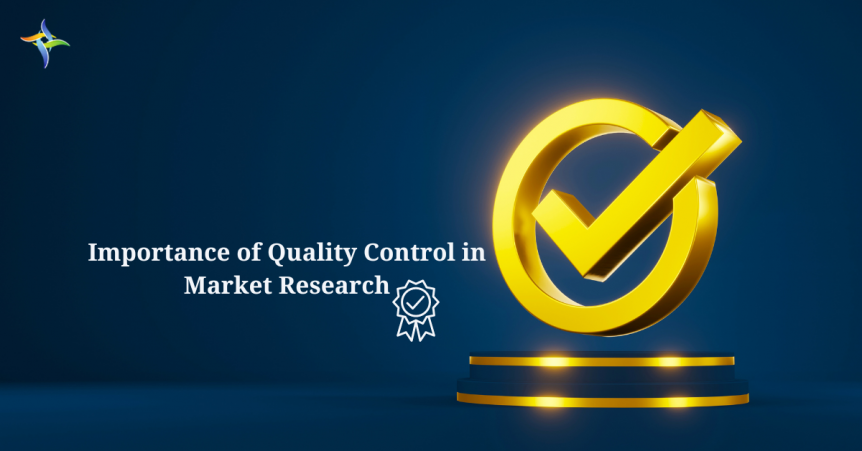Quality control in market research, also known as QC, refers to the methods and procedures employed during every stage of the research process to guard against human error by interviewers or enumerators, which could compromise the quality of the dataset.
Enabling a range of comprehensive measures will improve and promote the effectiveness and efficiency of data. Admittedly, high-quality and error-free datasets are essential for market research as they facilitate sound decision-making.
As market researchers, we rely heavily on data to make important business decisions and develop strategies. The quality of this data is extremely important. Even small errors or inaccuracies in the data can lead to significant issues such as:
1. Biased Data Gathering: Inadequate quality control might result in biased sampling strategies or data gathering techniques, which will distort the findings and render them unrepresentative of the intended audience.
2. Inaccurate Results: Inaccurate results can damage the credibility of a study. If the collected data is not thoroughly reviewed and checked, it will likely produce inaccurate results, which will negatively impact the study’s outcome.
3. Data Inconsistencies: In the absence of quality checks, contradictions or inconsistencies in the data gathered may go undetected, affecting the validity of the research’s conclusions.
4. Loss of Credibility: A company’s reputation within the industry or among clients may suffer as a result of inaccurate or faulty research, harming its credibility.
5. Misguided Marketing tactics: Poor research might result in decisions on product development that are based on untrustworthy insights or misguided marketing tactics, which can negatively affect the success of businesses.
If the data collected is inaccurate or biased, the entire research process will be flawed, resulting in misleading insights. Quality control measures should be taken to ensure the research produces accurate, reliable and actionable results.
Quality Control Measures in Market Research
In today’s saturated business environment, the consequences of poor data quality can be severe and far-reaching. Therefore, it is crucial to implement robust quality control (QC) measures at every stage of the research process:
- Data collection: Ensure data is collected accurately and consistently.
- Data analysis: Use appropriate analytical techniques and cross-check results.
- Reporting: Clearly communicate findings, assumptions, and limitations.
Some Key Quality Control Practices that ought to be followed in Market Research
1. Pre-test tools: Prior to the large-scale survey, conduct a small-group pre-test of the questionnaires or surveys to find and address any problems or uncertainties.
2. Sampling Techniques: To avoid biases, make sure the sampling technique is adequate and representative of the target population.
3. Training for Data Gathering: To guarantee reliable and consistent data gathering techniques, give interviewers and data collectors thorough training.
4. Fieldwork Monitoring: Keep an eye on data gathering to make sure that procedures are followed and that any problems are quickly found and fixed.
5. Data Validation and Cleaning: Follow protocols to ensure that the gathered data is free of mistakes and inconsistencies and that the data set is fully cleaned.
6. Quality Assurance Checks: Verify the correctness, consistency, and conformity to standards by periodically reviewing a portion of the data that has been gathered.
7. Use of Technology: To improve accuracy and efficiency, make use of devices or software that can help with data gathering and validation, such as GPS adoption, silent audio recording, and silent image capture.
8. Back-checking: This entails selecting a piece of the data at random and calling the respondents to re-administer the questionnaire. Data collected and information acquired will be compared.
By adhering to these best practices, researchers can minimize errors and biases, ensuring the integrity and quality of the collected data.
READ ALSO: Pilot Study in Market Research
Evolution of Quality Control in Market Research
Quality control is paramount for ensuring the quality of data collected in market research. However, the ways we collect and analyze data are evolving. This means we need new and flexible approaches to quality control.
The traditional quality control methods are still useful. However, they may not be enough to handle the challenges that come with new technologies and data sources.
Specifically:
- Data collection is evolving with new technologies and methods. Our quality control processes need to adapt to ensure accurate and consistent data collection.
- Data analysis involves dealing with different types of data from various sources. We need appropriate analytical techniques and rigorous cross-checking and validation for each data type.
- When reporting findings, we must clearly explain not only the results, assumptions, and limitations but also the data sources and collection methods used.
Conclusion
To ensure the highest quality in market research data, implement a comprehensive quality control framework that covers every stage of the research process.
Conducting pre-tests and pilot studies, using robust sampling techniques, providing thorough training for data collectors, actively monitoring fieldwork, rigorously validating and cleaning data, performing periodic quality assurance checks, integrating advanced technologies, and transparently reporting findings.
Through the adoption of these practices market researchers can obtain accurate, reliable data which is pivotal for sound business decisions and maintaining credibility with clients and stakeholders.
Our Commitment to Quality
Webhaptic Intelligence takes pride in delivering high-quality and reliable results for every project. Our seasoned researchers use standardized quality control methods to ensure accurate and trustworthy data. With expertise covering various industries, we provide insightful research findings that help businesses make strategic decisions.
We follow strict ethical standards and stay up-to-date with the latest technologies and best practices. This ensures our clients receive the most reliable and trustworthy insights to meet their business needs.
Co-Author: Bashir Muheeb

